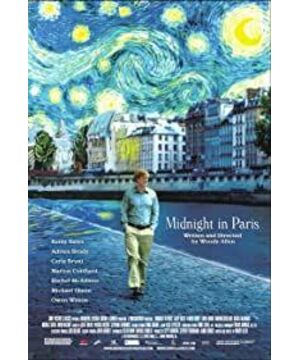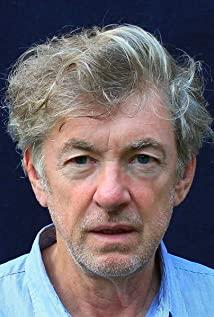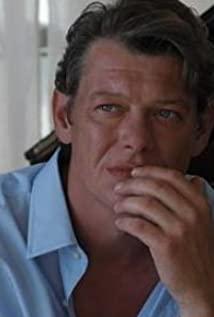Many people I saw the ridicule in "Midnight Paris" is the yearning of the European and American small intellectuals for Paris in the 1920s and 1930s. I woke up in the morning and saw a film review that talked about "Through the fuck, long live reality". To me, this movie is an intellectual version of Pirates. For many people who don't understand that period of history, this movie is really a dull "book bag drop" (the word Geer used to describe Paul in the movie) movie. In fact, you don't need to lose your book bag. If you have read the famous Hemingway's "The Flowing Festival" (the new version is called the Feast) and you have seen the great Gatsby, you can cross the entry barrier. The threshold is really not high!
If you want to understand the point of "going through the eggs, long live the reality", this movie is actually not a tribute to France, as those online film critics say, it is actually Woody Ellen teasing the French in his own way. For the French, the Golden Age and Belle Epoque are their capital, and the entire Cannes Film Festival is built on this foundation. Although at the beginning he used the Republican father to talk about his aversion to the French, but you must know that Woody Allen has won numerous awards throughout his life, but he has never been approved by Cannes. (In 1985, he won a Cannes Film Critics Award. This time is only the opening movie). It's actually a bit annoying. So this movie seems to me to be a complete ridicule. (In the movie, Hemingway said that "Nostalgia is a rejection of modernity" also satirizes these cultural authorities). As a Jew, Woody Ellen was born with the imagination of Paris, and for this reason, maybe Paris (or Cannes Film Festival) made this proud American particularly concerned. (Gana’s torture to the director is unimaginable. Even if he was as open-minded as Hou Xiaoxian, he won an award and tried to hit again, but the result was not obtained for many years. So in the best time of 2005, it was completely due to "Flowers on the Sea". "City of Sadness" and "Millennium Mambo" are a collection of comments on the techniques of the three films. The commentator said that Director Hou was angry with the judges "what do you like?") So you will see this American family On the one hand, there is Geer’s yearning and roaming about Paris. On the other hand, there will be mother-in-law and daughters purchasing old European furniture at high prices. Even when it comes to the French first lady appeared in Woody Allen also slightly ridicule understatement:. "She agreed to my request because she wanted to talk to grandchildren later said he acted in the movie"
the twenties and thirties Paris is the sacred place for American intellectuals. After that, the Spanish Civil War and World War II, the Marshall Plan, completely declined in cultural creation. In Midnight Paris, Woody Ellen has a natural affinity for American writers living in Paris, while his portrayal of the surrealist film director Bruair is full of ridicule, and Dalí is completely foolish. Both of these people have been in the film industry.
Whether it’s midnight Barcelona, midnight Paris, crazy artists, or Paris in the 1920s and 1930s. In this midnight series, we can always see those Americans who come to Europe to speak and write papers, as well as some American tourists. We can see sharp cultural contrasts, both in accent and behavior. These Americans have come to seek roots and pilgrimages, but they are always confused by the mixture of European gentleness and madness. Woody Ellen’s awesomeness lies in the fact that he criticized both Europe and the United States, and he also combined those who lectured, inspected, organized exhibitions, and mixed the artistic achievements of the art world (if artists are engaged in art, they are "Artists") were all scolded-in an exaggerated Broadway way. From this perspective, his irony of the red tape, hierarchy, and authority of the bourgeoisie is a continuation of the "left-wing spirit" that inspired Europe in the 1930s (the Republican father-in-law also mentioned Trosky at the time of the final breakup). This spirit was later destroyed by McCarthyism in Hollywood, but it also inspired the 1968 student movement and the American civil rights movement. The European 68 movement is anti-authoritative. But the participants later became the authority of the new politics (Despin) philosophy (postmodern). In the United States, this spirit was quickly "eliminated" the technical elite and the "academic bureaucracy" system by "Reagan (also an actor) doctrine". And I am afraid it is Woody Allen who insists (so his movie is not as good as Hollywood, but the holy land in its heart does not recognize him). So he is not used to it in the United States and Europe. Therefore, there is only one way to ridicule and criticize! But even so, his portrayal of the middle class and above is also intriguing.
View more about Midnight in Paris reviews











